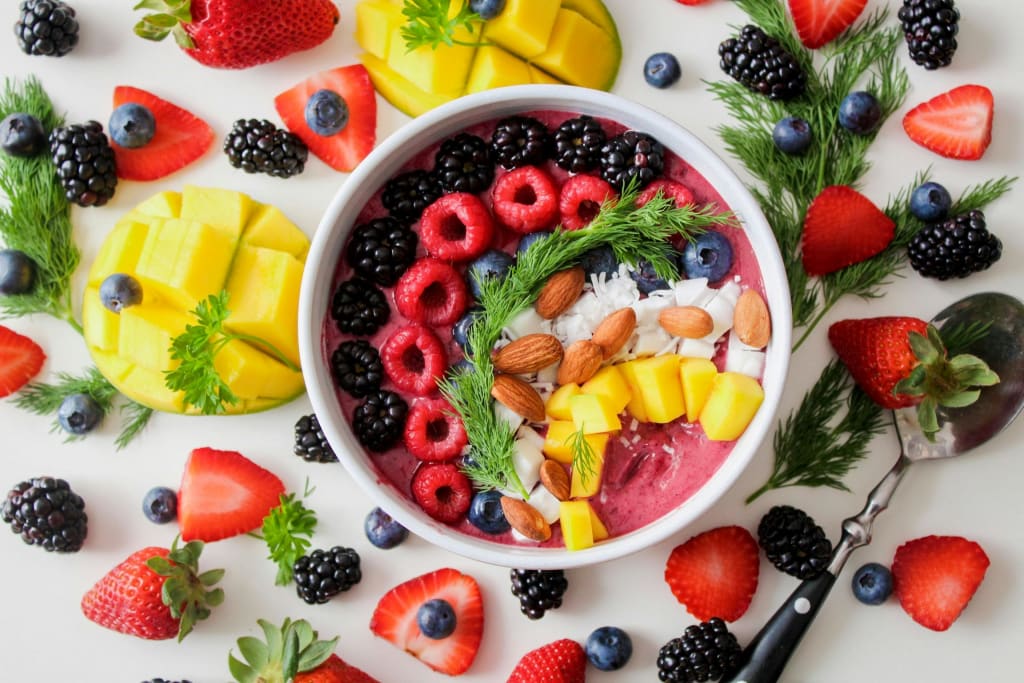Content warning
This story may contain sensitive material or discuss topics that some readers may find distressing. Reader discretion is advised. The views and opinions expressed in this story are those of the author and do not necessarily reflect the official policy or position of Vocal.

Ultra-processed meals have completely taken over fast-food menus and supermarket aisles in our current era of convenience. These goods, which are frequently enticing and handy, beg the important question: Are foods that have undergone extensive processing actually bad for our health? The discussion on how they affect wellbeing is complex and involves dietary choices, public health campaigns, and scientific studies. A thorough understanding of the complexity involved requires a thorough examination of the details surrounding ultra-processed foods and their possible effects on human health.
The NOVA classification system defines ultra-processed foods as mixtures of many ingredients, primarily for exclusive industrial use, usually lacking much in the way of whole food likeness. Preservatives, taste enhancers, and additives are frequently used in these formulations in order to increase shelf life and palatability. Sugary snacks, packaged desserts, quick noodles, and highly processed meats are typical examples. Their affordable prices and extensive availability have led to a rise in their global consumption.
The high concentrations of harmful fats, artificial additives, and added sugars found in ultra-processed foods are cited by critics as serious health risks. Overindulgence in these nutrients has been connected to numerous health problems, such as type 2 diabetes, obesity, cardiovascular disease, and some types of cancer. Furthermore, because they don't deliver satiety or vital micronutrients, their low nutritional density frequently encourages overconsumption. As a result, diets heavy in ultra-processed foods are frequently lacking in fiber, vitamins, and minerals that are vital for general health.
In addition, the production procedures used to create ultra-processed meals may include dangerous ingredients like acrylamide and advanced glycation end products (AGEs), which can have negative health effects if taken in excess. Reliance on low-cost components and industrial processes puts commercial margins ahead of nutritional value, which feeds the cycle of unhealthy eating patterns and chronic illness.
On the other hand, advocates of highly processed foods contend that stigmatizing them oversimplifies a complicated problem. They draw attention to the fact that not all processed meals are intrinsically bad and that technical developments have made it possible to fortify some goods with vital nutrients, thereby addressing specific nutritional deficits that exist in people all over the world. Ultra-processed meals also appeal to people with hectic schedules and little money since they are affordable and convenient.
Research endeavors examining the health effects of highly processed foods frequently encounter methodological obstacles, including characteristics that could cause confounding and self-reported dietary evaluations. The requirement for long-term studies and randomized controlled trials to conclusively prove causality is emphasized by critics of the current study. Furthermore, they say that demonizing particular food groups oversimplifies the intricacies of human nutrition and emphasize the significance of individual dietary patterns and lifestyle factors in influencing overall health outcomes.
The controversy surrounding ultra-processed meals penetrates industry laws and public policy in addition to scientific research. Recently, there has been a push for stronger food labeling regulations, limitations on advertising, and taxes on unhealthy items in an effort to reduce the use of highly processed foods and encourage the adoption of healthier eating habits. Furthermore, grassroots movements against the dominance of industrialized food systems have arisen, calling for locally sourced and ecological alternatives.
It is imperative to provide customers with education regarding the possible hazards linked to ultra-processed foods in order to enable them to make knowledgeable dietary choices. Health campaigns that highlight the value of whole, minimally processed foods as the cornerstone of a balanced diet have the potential to influence social norms and promote better eating practices. Furthermore, programs that enhance food literacy and cooking abilities can enable people to cook wholesome meals at home, which will lessen their dependency on convenience foods.
In conclusion, there are valid points made on both sides of the argument about the complexity and diversity of the issue of whether or not ultra-processed foods are unhealthy. Critics draw attention to the harmful health implications of their intake, while supporters stress how convenient and reasonably priced they are in today's world. In the end, attaining a balanced approach to nutrition necessitates a sophisticated comprehension of the socioeconomic situation, the specific dietary requirements of each individual, and the larger picture of society. We can manage the complexity of the contemporary food scene and enable people to make healthier decisions for themselves and future generations by encouraging food literacy, developing culinary skills, and fighting for laws that prioritize public health.
About the Creator
Enjoyed the story? Support the Creator.
Subscribe for free to receive all their stories in your feed. You could also pledge your support or give them a one-off tip, letting them know you appreciate their work.





Comments
There are no comments for this story
Be the first to respond and start the conversation.